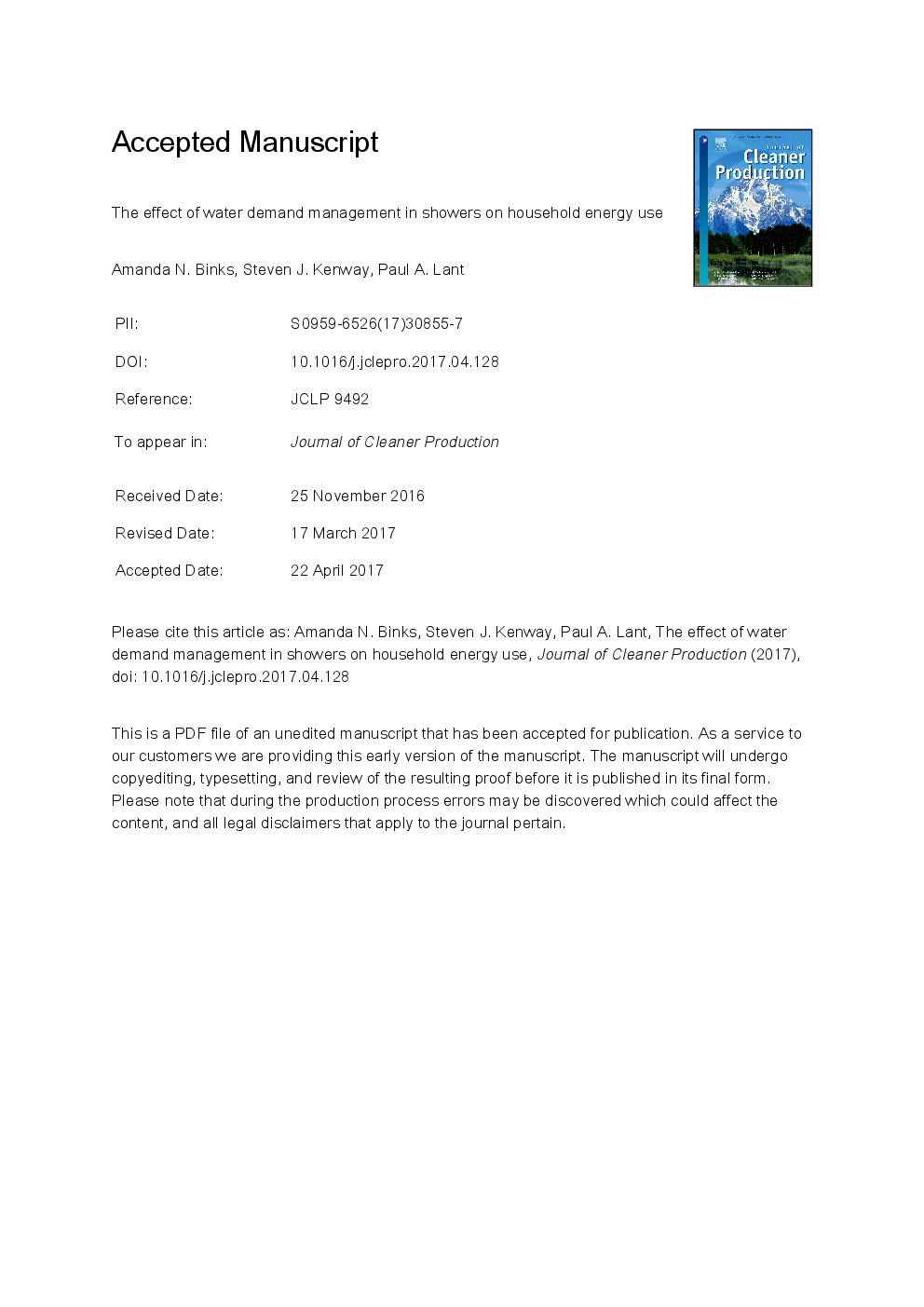ترجمه فارسی عنوان مقاله
تأثیر مدیریت تقاضای آب در دوش بر مصرف انرژی خانوار
عنوان انگلیسی
The effect of water demand management in showers on household energy use
| کد مقاله | سال انتشار | تعداد صفحات مقاله انگلیسی |
|---|---|---|
| 93996 | 2017 | 30 صفحه PDF |
منبع

Publisher : Elsevier - Science Direct (الزویر - ساینس دایرکت)
Journal : Journal of Cleaner Production, Volume 157, 20 July 2017, Pages 177-189
ترجمه کلمات کلیدی
اب، انرژی، تجزیه و تحلیل جریان جریان، انتشار گازهای گلخانه ای، مسکونی مدیریت تقاضا،
کلمات کلیدی انگلیسی
Water; Energy; Material flow analysis; Greenhouse gas emissions; Residential; Demand management;

